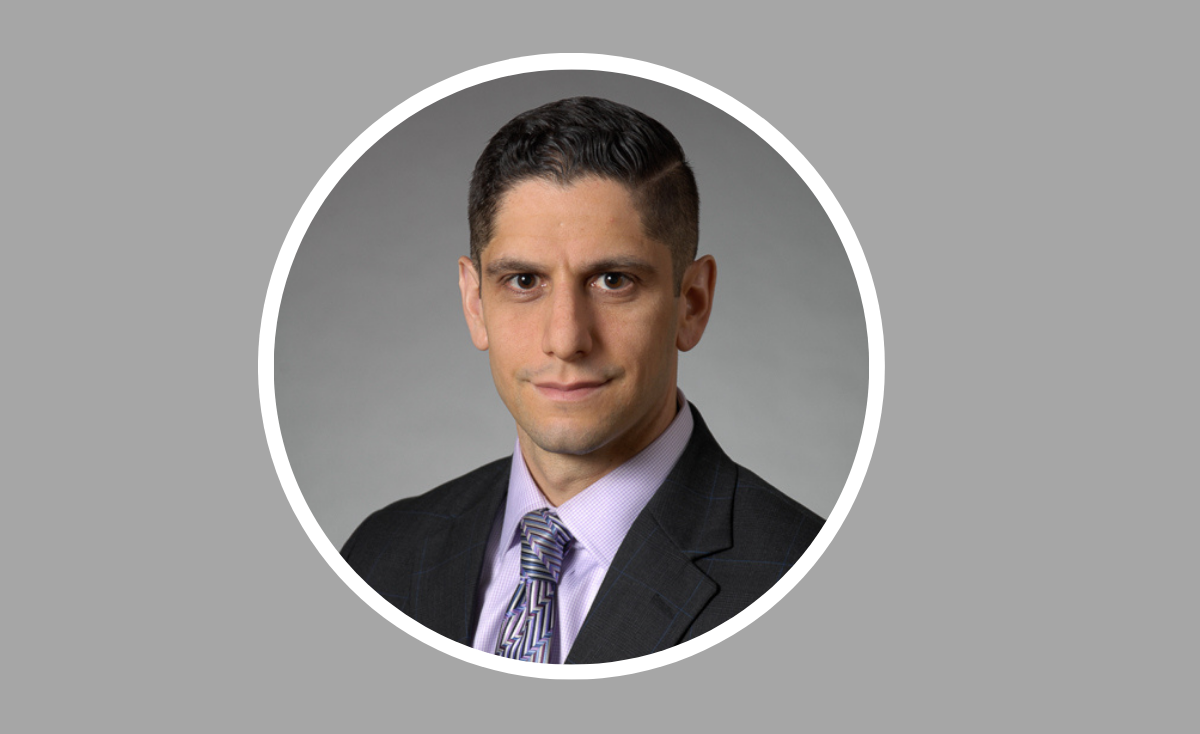How fund operators can overcome issues around scalability
Russell Newman, Chief Operating Officer, Rothschild & Co Asset Management US Inc., explains how scalability and outsourcing are two sides of the equation and what fund operators need to keep in mind in the new normal.
Andrew Putwain POSTED ON 5/16/2022 10:26:24 AM
 Russell Newman, Chief Operating Officer, Rothschild & Co Asset Management US Inc.
Russell Newman, Chief Operating Officer, Rothschild & Co Asset Management US Inc.
Andrew Putwain: What are the issues around scalability that fund operators come across?
Russell Newman: Scalability is one of the most important factors for a company that is looking to grow and wants to be ahead of growth by having the right infrastructure, systems, data, and people in place to help with the full lifecycle of the business.
People should focus on what type of systems they have. You want to have the right people supporting your business who understand it from a top-down perspective.
"In a small firm like ours, outsourcing makes sense because resources, systems, and technology are important. Getting that balance right is essential as we want to make sure we can scale quickly"
Operations managers need to examine the entire architecture of the business and create a lifecycle of a trade from institutional and/or retail platforms - where does it start and where does it finish? It is a cliché but images - in this case, diagrams - really are “worth 1000 words”, which clients appreciate on their due diligence visits. This identifies strengths and weaknesses within the life cycle that would initiate an outsourcing discussion.
This leads to evaluating whether a firm should be fully outsourced or on-premises or a hybrid method. It depends on the size and complexity of the business because not everyone thinks you should lose complete control. In a small firm like ours, outsourcing makes sense because resources, systems, and technology are important. Getting that balance right is essential as we want to make sure we can scale quickly.
Andrew: What recommendations do you have for overcoming these issues, particularly for smaller companies or those in a shared services model?
Russell: You want to stay key to your core competencies and not take on functions or technology that you are not a subject matter expert on - in a small firm, leave that to your vendors. Outsourcing makes the most sense from both a scalability and an efficiency perspective in this area.
Select the right vendor and it will allow people to learn at a top-down level rather than by doing grunt work. The vendor will perform these functions (i.e., reconciliation, performance, or fund accounting), which allows people to grow internally and keeps people happy and motivated.
A conception people have is that outsourcing results in a lack of control. There are pros and cons to outsourcing; you do lose a little bit of control, but it requires tighter oversight. This allows us to focus on what is not working; in an asset management environment, trading is fast, so you need to react in real-time. When you can identify points in the process that may break then the goal is to identify where and mitigate them as quickly to make sure that the system is accurate.
"People in this industry use the outsourcing model, and then put in controls and exception-based reporting to identify the issues, but we do not focus on what is working"
Andrew: With shared services models, what are the ways that it can help with this?
Russell: Having the right personnel, the right vendors and data providers, and the right infrastructure will help with the efficiency of the firm.
We, as the asset manager, are responsible for everything even if we outsource, as we have a fiduciary responsibility to our clients, so we need to ensure that we have the right controls and the processes.
People in this industry use the outsourcing model, and then put in controls and exception-based reporting to identify the issues, but we do not focus on what is working.
When you have all these efficiencies in place, clients become more comfortable that the business is efficient and proper controls are employed. They know that no business is perfect, but they want to see that you have proper controls, are consistently monitoring and when issues arise, these are evaluated and addressed so these issues do not happen in the future.
Andrew: Is root-cause analysis an important factor here?
Russell: Yes, I incorporated IT and operations into one group because even though IT doesn't do the same tasks that operations do, they are an integral part of the team: they are creating and monitoring batch processing and implementing exception-based reporting. I want them to understand what we do on a day-to-day basis. For larger firms, it isn’t as easy to integrate IT into operations, but in a small firm, it is helpful.
With this set-up, if a person is on vacation, and someone gets sick, IT can fill in. It helps in keeping redundancy and key man risk within the firm, which is also important in scalability. We want to have people be able to support other aspects.
Andrew: The issue of tiered vendors can be complicated for fund operators, what benefits/drawbacks do they offer and what would you recommend as the most efficient way of using them for scalability and profitability and business improvements?
Russell: We created a vendor Oversight Committee, which is made up of subject matter experts within the firm (i.e., COO, CISO, CCO). The Committee assigns each vendor a risk tier based on factors that may include corporate reputation, the criticality of functions provided, level of access, the sensitivity of the information accessed and/or stored, processes and other relevant factors.
The assigned risk tier, as well as the results of prior assessments, will determine the type and frequency of the assessment to be conducted. Since these critical vendors are an extension of your firm, having ongoing meetings is a good way to ensure all issues, concerns and questions are addressed in a timely fashion. Also, you can discuss ongoing goals for both parties to ensure alignment.
"Outsourcing does come at a cost, but those costs in scalability terms could help your business grow efficiently over time, whereas trying to build it in-house or employ all the additional costs that come along internally could be a lot"
You want to ensure proper communication with your vendors; we have weekly meetings with our critical vendors, so any issues are addressed. We have monthly reporting where we talk about the process. You want to ensure that you are aligned. The partnership goes a long way as they feel part of the team, and this allows us to run an effective environment.
Outsourcing does come at a cost, but those costs in scalability terms could help your business grow efficiently over time, whereas trying to build it in-house or employ all the additional costs that come along internally could be a lot; there is a happy medium and outsourcing doesn't always mean more cost. Keeping things in-house doesn't necessarily mean fewer costs either, as it depends on complexity.
Andrew: In the post-pandemic environment with working from home (WFH), hybrid working as well as higher staff turnover and expenses, what are the issues you see in scalability?
Russell: In-office or WFH is the biggest question that firms are dealing with, large or small. Some think employees need to be in the office five days a week and that it is the only way to operate a business - then you have a contingent who say the majority of employees can WFH, and then you have people who back a hybrid working scheme.
Covid-19 has proved that you can be as efficient at home as you were in the office. WFH has worked for us for two and a half years; the team has been logged on earlier and stayed on late and has the flexibility to go to the doctor or to run a quick errand and yet still be reachable. I have operated in the same manner as if we were five days in the office; I still have my weekly meetings with the team and my biweekly meetings with individual staff members.
"Covid-19 caused people to take a look at their work/life balance and the dynamic of being able to see your family and not having to worry about the commute. It showed people another way and firms have to be more flexible"
We use instant messaging and people love the chat function. This way, you are not bothering people if it is not important, and you respond when you see it and people are more accessible. From an operations perspective, we could be fully remote or hybrid.
Covid-19 caused people to take a look at their work/life balance and the dynamic of being able to see your family and not having to worry about the commute. It showed people another way and firms have to be more flexible.
Firms also get the benefit of being able to employ people from any location - the pool of people potentially becomes endless. If you aren’t based out of an office in New York then you can hire someone from California, you have the access to talent more so than ever.
It is the employee’s choice to stay or to move to a firm that has that flexibility, so people's decisions will have downstream effects.
For some people the question is going to be going forward, can I WFH, and people are picking from that – they are not considering opportunities because of it - if a firm is five days in the office, they can find a fully remote job even if it is a pay cut. You can't put a price on WFH and the flexibility that comes with it. However, I feel that over time the industry will settle on a hybrid model.
Andrew: Any final thoughts?
Russell: My advice is when firms are evaluating your business, take your time. Evaluate the business carefully. You want to get it right the first time and not make drastic changes in the future. Take your time designing what you want to keep in-house and what you want to outsource. Having the right platform in place will enable client retention and the courting of prospective clients. Operations and infrastructure may not be able to win business, but we can lose business if we don't have the proper infrastructure.
Disclaimer: These are Newman’s personal views and not the views of Rothschild as a company.
Please Sign In or Register to leave a Comment.
SUBSCRIBE
Get the recent popular stories straight into your inbox







